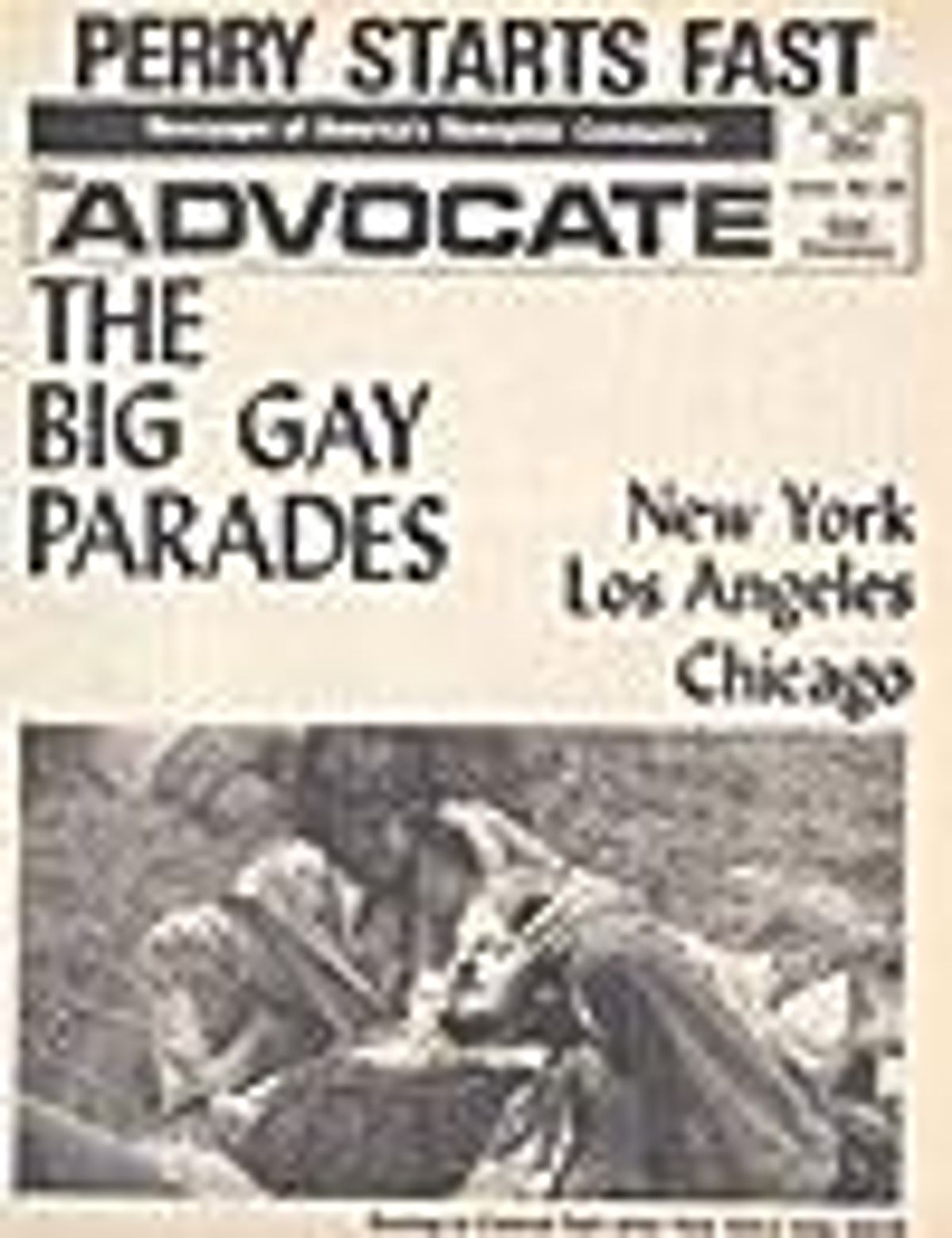In late May 1970,
Morris Kight called my home and asked if I had read an
article in The Advocate about the Stonewall riots in
New York City. I told him that I had, and he suggested
we meet with Reverend Bob Humphries and see if we
could find a way to memorialize them in Los Angeles.
We met for coffee three nights later and discussed several
ways that we could celebrate. I spoke up and said,
"Why don't we just hold a parade?"
We went to the
police commission to fill out an application for a parade
permit. I answered questions in front of the police
commission for about two hours when L.A.'s
then-chief of police Ed Davis said, "Did you
know that homosexuality was illegal in the state of
California?" I said, "No, sir, it's
not." We debated until he said, "Well, I'll
tell you something, as far as I'm concerned, granting
a parade permit to a group of homosexuals to parade
down Hollywood Boulelvard would be the same as giving
a permit to march to a group of thieves and
murderers!"
To make a long
story short, they debated, and in the end, the commission
decided they would give us the permit if we could post two
bonds, one for $1 million, the other for $500,000. I
thanked them, and we went to the American Civil
Liberties Union. Hubert Selwynn, a lawyer for the ACLU,
took our request to the California superior court, which not
only granted us the parade permit but also required
the police to protect us as they would any other
group.
On Sunday
afternoon, June 28, 1970, the first LGBT pride parade in Los
Angeles stepped off at the corner of Hollywood
Boulevard and McCadden Place. Over 2,000 people showed
up to march, drive their floats, and walk their pets.
I've never felt so empowered in my life (other than
when I founded the Metropolitan Community Churches).
The parade was
incredible for its time. While forming our parade, we
learned that our gay brothers and sisters in New York had
failed to get their permit and had to march on the
sidewalks without any formation. We were exuberant to
learn that they had gone on and marched anyway. We
didn't get the bands that we wanted, so my roommate, Willie
Smith, drove the parade route in his VW minibus,
playing World War II German marches from an
amplification system he'd hooked up. Willie's thinking?
Since the Los Angeles police department treated us
like the oppressed of WWII, they might actually enjoy
the music and leave us alone. We had a little bit of
everything. The Society of Anubis took the lead with its
float. A young man with an Alaskan husky and a sign
that read "We Don't All Walk Poodles"
led the pet-walking section. Incidentally, a photograph of
him and the dog wound up in a Time magazine
article about the new gay militancy. The Gay
Liberation Front of Los Angeles came down the
boulevard carrying banners and shouting, "Two, four,
six, eight...gay is just as good as straight."
Even a pretty conservative gay group from extremely
conservative Orange County brought a large sign that read
"Homosexuals for Ronald Reagan." I heard a
woman on the sidewalk say, "I can forgive them
for being homosexual, but I will never forgive them for
supporting Ronald Reagan."
After the parade
I went to the corner of Hollywood Boulevard and McCadden
Place with Carole Shepherd, president of the Daughters of
Belitis, and Kelly Weiser of Homophile Effort for
Legal Protection. We announced that we would sit there
until someone from city government came and talked
with us. I also announced to my church that I would fast
until that happened.
Twenty minutes
later the police came and arrested the three of us for
"viciously and maliciously blocking a sidewalk to do
harm." It was an old California law that was
meant to stop unions from organizing during the Dust
Bowl. Carole and Kelly were immediately bailed out. The next
morning I was taken to the courthouse near downtown
Los Angeles. The deputy city attorney tried to
frighten me by telling me that I was not going to get
out of jail without putting up bail. I told him that I could
fast as well in jail as out, so I may as well stay in
if that's how it was going to be.
After I was
released, I was told the best place to fast without being
arrested was in front of the Federal Building in downtown
Los Angeles--only federal marshals could arrest me
there.
For the next 16
days I just consumed water, no food. I had gone to the
bathroom on that 16th day when city council member Robert
Stephenson and his wife, Peggy, arrived and left a
letter for me, inviting me to his office to talk about
gay rights. He was the first of many allies to come to
the defense of our community over the years.
That first LGBT
parade in Los Angeles put a political edge on our fight.
Never again would the police or anyone who tried to stop our
movement frighten us. Our community made up its mind
that year that the most important thing that we could
do was to encourage people to come out of the closet
by joining parades and demonstrations. And we have never
looked back.
Today at the
corner of Hollywood Boulevard and McCadden place is a bronze
plaque that says, "Christopher Street West. On June
the 28th 1970, the first Gay Pride parade in Los
Angeles stepped off from this corner. The city of Los
Angeles closed Hollywood Blvd. for the parade which was the
first such action in America. The organizers of the event
were, Rev. Troy Perry, Rev. Bob Humphries, Mr. Morris
Kight." It's one of the few memorials dedicated
to a LGBT pride parade anywhere in the world.



















































































